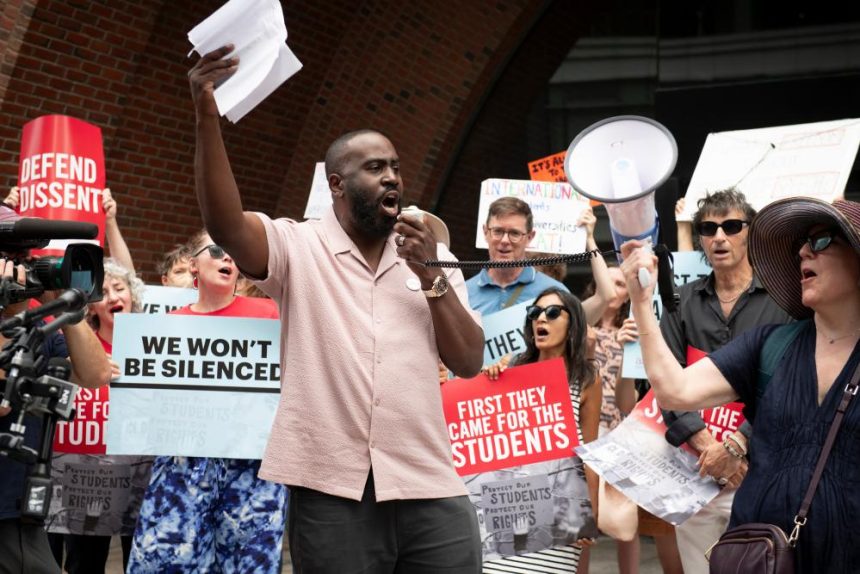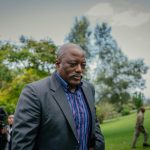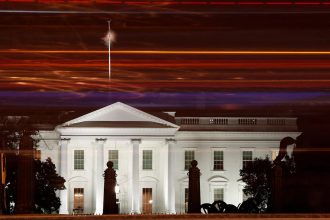A federal judge has ruled that the Trump administration’s policy to detain and deport foreign scholars over their pro-Palestinian views violates the US constitution and was designed to “intentionally” chill free speech rights.
The case was brought by the national American Association of University Professors (AAUP); its Harvard, Rutgers and New York University chapters; and the Middle East Studies Association (Mesa), following the arrest and detention of several non-citizen students and scholars who have spoken out for Palestinian rights.
In a 161-page ruling issued on Tuesday, the judge, William G Young, called the case “perhaps the most important ever to fall within the jurisdiction of this district court”.
Related: The Democratic superlawyer Trump can’t silence: ‘We are in the break-glass moment of American history’
“This case … squarely presents the issue whether non-citizens lawfully present here in United States actually have the same free speech rights as the rest of us,” Young wrote in the ruling. “The Court answers this Constitutional question unequivocally ‘yes, they do’.
“‘No law’ means ‘no law’,” Young continued – a reference to the first amendment’s stipulation that Congress “shall make no law” abridging the freedom of speech. “No one’s freedom of speech is unlimited, of course, but these limits are the same for both citizens and non-citizens alike.”
The plaintiffs had accused the government of running an illegal “ideological-deportation policy”.
The government denied such a policy existed, declaring in court filings that it was the product of plaintiffs’ “imagination”. It also claimed the authority to deport non-citizens who have committed no crimes but whose presence it deems poses a threat to US foreign policy.
During the trial, the government’s attorneys sought to block the release of documents detailing its processes and reasons for revoking student visas and issuing determinations of removability for green card holders. Several state department officials testified in court that they had been instructed by higher-ups to compile allegations about the individuals targeted, sometimes relying on dossiers compiled by the rightwing Canary Mission, a secretive, pro-Israel group dedicated to doxing thousands of pro-Palestinian scholars.
The case was filed in March and went to trial in July. During two weeks of testimony, both citizen and non-citizen scholars spoke of the “chilling effect” caused on campuses across the country by the arrests of Mahmoud Khalil, Mohsen Mahdawi, Rümeysa Öztürk and Badar Khan Suri. The scholars have since been released while their immigration cases proceed in court.
In a statement, Todd Wolfson, the president of the AAUP, called the Trump administration’s attempted deportation of students over their political views “a betrayal of American values”.
“This trial exposed their true aim: to intimidate and silence anyone who dares oppose them,” he added. “If we fail to fight back, Trump’s thought police won’t stop at pro-Palestinian voices – they will come for anyone who speaks out.”
Jameel Jaffer, director of the Knight First Amendment Institute, which represented the plaintiffs, hailed the ruling as “historic”.
“If the first amendment means anything, it means the government can’t imprison people simply because it disagrees with their political views,” he said in a statement. “We welcome the court’s reaffirmation of this basic idea, which is foundational to our democracy.”
The US Department of Justice and the Department of State did not immediately respond to a request for comment. The ruling is widely expected to be appealed, possibly all the way up to the US supreme court.









